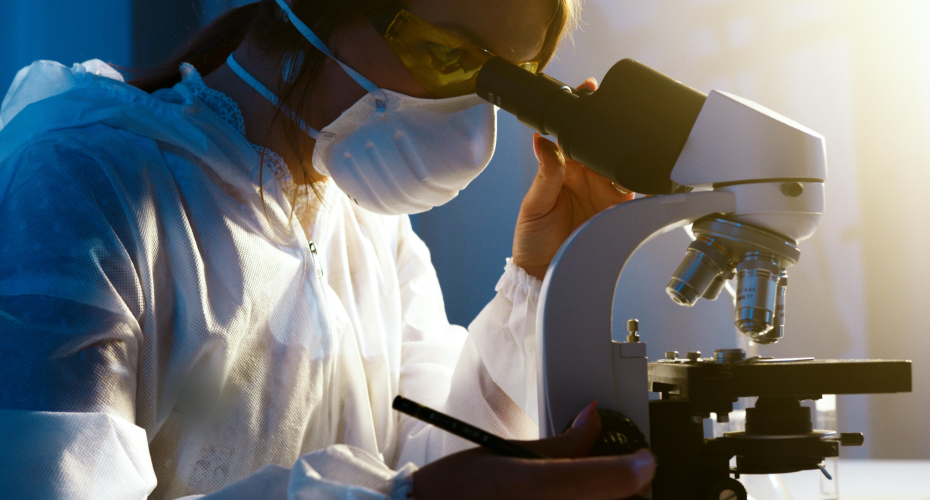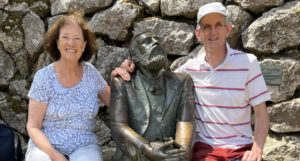GW4 awarded £2.6million to accelerate innovative health research

Photo by Artem Podrez on Pexels
Researchers from the GW4 Alliance (Universities of Bath, Bristol, Cardiff and Exeter) have secured £2.6million to facilitate novel technologies into groundbreaking health research possibilities.
A £1.5million fund from Biotechnology and Biological Sciences Research Council (BBSRC) ALERT scheme, supported by an additional £75,000 from the University of Bristol, will enable the installation of the Southwest’s first cryo-focused ion beam-scanning electron microscope (cryo-FIB-SEM).
The new equipment will enable researchers to conduct in situ structural biology research, allowing for a more detailed and accurate analysis of cell structures than has previously been possible. This will improve research into topics such as the human immune system, animal-to-human transmitted diseases, and antimicrobial resistance.
The Nobel prize-winning technology of cryogenic Electron Microscopy (cryo-EM), where samples are rapidly frozen to below -180°C, has transformed structural biology research, furthering knowledge of biology, providing novel insights into the molecular mechanisms of health and disease, enabling drug design, and driving engineering biology efforts.
The new equipment will enhance the world-leading £2.3million GW4 Facility for High-Resolution Electron Cryo-Microscopy, which, located at the University of Bristol, was opened in 2017 and provides access to cryo-microscopy for researchers in the South West and South Wales. Since 2017, the facility has enabled the determination of dozens of structures and accelerated research across the GW4 Alliance into vital areas such as human health and disease.
Across the GW4 Alliance universities of Bath, Bristol, Cardiff and Exeter, the new equipment has already been earmarked to drive new and significant research findings across an initial 18 research projects.
Principal Investigator and Associate Professor at the University of Bristol, Dr Thom Sharp, said: “The new cryo-FIB-SEM is a game-changer. Alongside making projects that were previously impossible, possible, the equipment will allow us to think up projects that we haven’t even conceived of before. This opens-up a whole new world of opportunities to understand biology at the nanoscale. More than 35 researchers from across the GW4 Alliance provided projects and ideas for this grant, highlighting just how important this new equipment will become.”
In addition to funding for the new cryo-FIB-SEM, Exeter researchers have also secured £1.1million in funding from BBSRC to replace their current cryo-EM, which will help to secure the future of the GW4 cryo-EM pipeline.
The University of Exeter has had a cryo-EM facility since 2017, which was established by Dr Vicki Gold and Dr Bertram Daum, and is used for screening samples and collection of preliminary data. This facility serves as a satellite feeder, boosting activity at the GW4 Cryo-EM facility and is vital for supporting its usage. This new funding will facilitate the replacement of the existing equipment with the latest generation entry-level screening microscope, which will enable the facility to continue to pump prime activity at the GW4 centre.
Dr Vicki Gold, Chair of the GW4 Cryo-EM Steering Group and Associate Professor in Biosciences at the University of Exeter, said: “We are absolutely delighted with this new funding award, which brings together over 20 academics and technical staff from across the GW4 region. It will open up exciting opportunities for groundbreaking research and ensure we continue to support and enhance the activity at the GW4 Regional Facility for CryoEM.”
GW4 Alliance Director, Dr Joanna Jenkinson MBE, said: “The installation of the new cryo-FIB-SEM at the core GW4 facility, in Bristol, in combination with funding for the upgraded technology at the University of Exeter-based satellite facility, will allow the GW4 Alliance to continue to deliver world-leading imaging research and enable its outstanding researchers to make groundbreaking discoveries. Using this transformative technology, we will tackle some of the most pressing global health challenges. We are thrilled that our researchers have been awarded this vital equipment by BBSRC and are excited to see its impact in action.”



